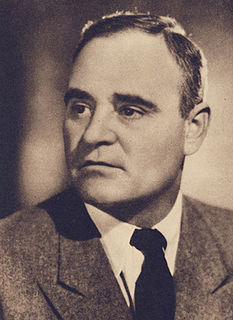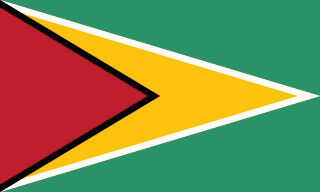
General elections were held in the Netherlands on 25 May 1977. The Labour Party remained the largest party, winning 53 of the 150 seats in the House of Representatives. Following the election, it took 208 days of negotiations to form a new government. This was a European record for longest government formation that stood until after the 2010 Belgian general election. The Christian Democratic Appeal was formed by the Anti-Revolutionary Party (ARP), Christian Historical Union (CHU) and the Catholic People's Party (KVP) in 1976. The first joint party leader was a member of the KVP, Dries van Agt.

General elections were held in Denmark on 8 February 2005. Prime Minister Anders Fogh Rasmussen's Venstre retained the largest number of seats in parliament. The governing coalition between the Venstre and the Conservative People's Party remained intact, with the Danish People's Party providing the parliamentary support needed for the minority government. The Danish Social Liberal Party made the biggest gains of any party, although it remains outside the governing group of parties. The election marked the second time in a row that the Social Democrats were not the largest party in the parliament, a change from most of the 20th century. The party lost 5 seats and leader Mogens Lykketoft resigned immediately after the election.

Elections in Guyana take place within the framework of a multi-party representative democracy and a presidential system. The National Assembly is directly elected, with the nominee of the party or alliance that receives the most votes becoming President.

General elections were held in El Salvador on 20 March 1994, with a second round of the presidential elections taking place on 24 April. Armando Calderón Sol of the Nationalist Republican Alliance won the presidential elections, whilst his party also won the legislative elections. Voter turnout was 50% in the first round of the presidential elections and 45.5% in the second, whilst it was 53.1% for the legislative election.

Parliamentary elections were held in Greece on 5 March 1950. The People's Party emerged as the largest party in Parliament, winning 62 of the 250 seats.

General elections were held in Belgium on 17 April 1977. The result was a victory for the Christian People's Party, which won 56 of the 212 seats in the Chamber of Representatives and 28 of the 106 seats in the Senate. Voter turnout was 95.1%. Elections were also held for the nine provincial councils and for the Council of the German Cultural Community.

General elections were held in Belgium on 8 November 1981. Voter turnout was 94.5% in the Chamber election and 94.6% in the Senate election. Elections were also held for the nine provincial councils and for the Council of the German Cultural Community. They were the first elections after the voting age was lowered from 21 to 18. This contributed to the success of the socialist parties and the green parties. The traditionally largest Christian People's Party saw significant losses, with only 43 of the 212 seats in the Chamber of Representatives.
Federal elections were held in Switzerland on 27 October 1963. The Social Democratic Party emerged as the largest party in the National Council, winning 53 of the 200 seats.
Federal elections were held in Switzerland on 30 October 1955. The Social Democratic Party emerged as the largest party in the National Council, winning 53 of the 196 seats.

A constitutional referendum was held in Poland on 25 May 1997. Voters were asked whether they approved of a new constitution. It was narrowly approved, with 53.5% voting in favour. Voter turnout was just 42.9%. Although the 1995 Referendum Act stated that a 50% turnout was required to validate the referendum, the Supreme Court ruled on 15 July that the constitution could be introduced.

General elections were held in Guyana on 15 December 1980. The result was a victory for the People's National Congress, which won 41 of the 53 seats. However, the PNC's victory was the result of fraud as the government had direct control of the elections. Voter turnout was 82.3%.

Parliamentary elections were held in Mongolia on 26 June 1966. At the time, the country was a one-party state under the rule of the Mongolian People's Revolutionary Party. The MPRP won 234 of the 287 seats, with the remaining 53 seats going to non-party candidates, who had been appointed by the MPRP due to their social status. Voter turnout was reported to be 100%, with only 14 registered voters failing to cast a ballot.

General elections were held in British Guiana on 7 December 1964. They saw the People's Progressive Party win 24 of the 53 seats. However, the People's National Congress and United Force were able to form a coalition government with a working majority. Despite losing the elections, Prime Minister and PPP leader Cheddi Jagan refused to resign, and had to be removed by Governor Richard Luyt, with Forbes Burnham replacing him. Voter turnout was 97.0%.

General elections were held in Guyana on 17 July 1973. The result was a victory for the People's National Congress, which won 37 of the 53 seats. However, the PNC's victory was the result of fraud as the government had direct control of the elections. Voter turnout was 81.0%.

General elections were held in Guyana on 9 December 1985. The result was a victory for the People's National Congress, which won 42 of the 53 seats. However, the elections were marred by fraud and the People's Progressive Party and Working People's Alliance withdrew on election day. Voter turnout was 73.8%.
A referendum on a new constitution and citizenship was held in Estonia on 28 June 1992. Voters were asked whether they approved of the new constitution drawn up by the Constitutional Assembly and extending suffrage to people registered as citizens. The new constitution was approved by 91.9% of voters, whilst the suffrage extension was rejected by 53.5%. Voter turnout was 66.8% for the constitution question and 66.7% for the suffrage question.

General elections were held in Liechtenstein on 5 February 1922, with a second round on 16 February. They were the first elections held under the 1921 constitution, which resulted in some changes to the electoral system. The result was a victory for the opposition Christian-Social People's Party, which won 11 of the 15 seats.
Indirect Constitutional Assembly elections were held in Luxembourg on 28 July and 4 August 1918. The Party of the Right emerged as the largest party, winning 23 of the 53 seats. The Assembly was tasked with revising the constitution to democratise the country's political structure. The amendments were promulgated on 15 May 1919, introducing proportional representation and the option of holding referendums.

Parliamentary elections were held in Romania on 5 March 1961. Voters were presented with a single list from the People's Democratic Front, which was dominated by the Romanian Workers Party. The Front won all 465 seats in the Great National Assembly.
The People's Party was a political party in Bulgaria between 1894 and 1920.













